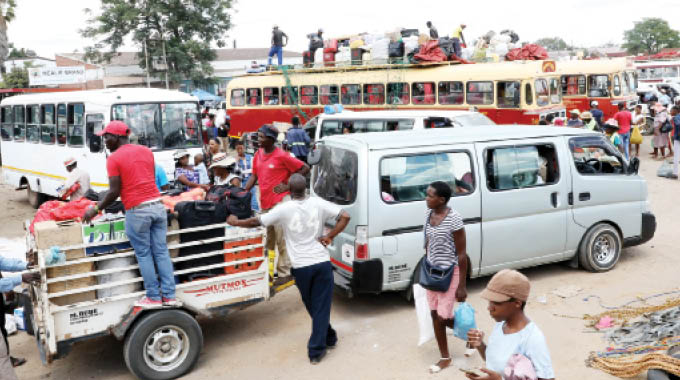People looking to travel for the festive holidaysin Zimbabwe were yesterday infuriated after most transport operators hiked fares by more than 50% as they capitalised on increased demand.
The Christmas season comes at a time when the economy is continuing to tank, with the local currency trading between ZiG35 and ZiG40 to the US dollar on the parallel market.
Bus operators hiked fees to maximise on profit this festive season, piling pressure on the already impoverished Zimbabweans.
At Mbare Musika bus terminus, a trip to Marondera was doubled to US$6 from US$3.
A trip to Mutare had jumped to US$20 from US$10 while a trip to Chiredzi was doubled to US$25.
Commuters travelling from Harare to Gweru forked out US$15 instead of the usual US$10.
Most of the people who were at the Mbare Musika rank were accompanying their loved ones with a few of them being part of the journey.
Passenger Association of Zimbabwe president Tafadzwa Goliath said fares were increased due to high demand.
“However, not all operators have made changes. Before planning a trip, commuters should kindly confirm fares with their preferred transport operator to avoid any surprises,” he said.
This festive season comes at a time when the economy is underperforming with the local currency, the Zimbabwe Gold (ZiG), flattering to deceive.
ZiG debuted at an exchange rate of US$1:ZiG13,6 on April 8. It was trading at ZiG25,7639 per dollar on Friday. This means that the ZiG has depreciated by 47% since April 8, that is, it has lost nearly half of its value. Such a sharp depreciation has been felt in prices as they head northwards at a time when salaries are stagnant.
There has also been a spike in the prices of basic goods at the onset of the festive season.
Mbare resident Allan Govera expressed frustration over the steep increase in prices of basic commodities such as sugar, cooking oil and rice in local currency.
In downtown Harare, where prices are exclusively pegged in United States dollars, a 2-litre bottle of cooking oil, which last week was selling at US$3, now range between US$3,40 and US$4 while a 2-litre bottle of Mazoe Orange Crush now costs US$6 from US$4,50.
Prices of clothes have also increased with a pair of jeans, which were pegged at around US$9 or US$12 a week ago, now costing between US$15 and US$20.
Meanwhile, Grain Millers Association of Zimbabwe chairperson Tafadzwa Musarara has said the industry has supplied enough stocks despite an increased demand for products due to the festive mood.
“The grain milling industry has, this festive season, successfully supplied the local market with various grain processed products, which includes maize meal, rice, flour, salt, among others,” Musarara said.
“While demand is currently high, the supplies are exceeding demand by more than 38,9%, resulting in price stabilisation and product available in all retail shops, both formal and informal.”
Formal retailers said the tills have not been ringing frequently this festive season amid a deteriorating economic environment.
“We used to close at 9pm during the festive season but this year, the volume of shoppers has declined forcing us to close at 7pm. This paints a gloomy picture for formal retailer and the government since we pay taxes,” a manager at a leading retailer told NewsDay.
“At this rate retrenchments are on the way. The informal sector has eaten into a huge chunk of our business yet it does not pay taxes.”
“I am appalled by the drastic increase in transport fares. Just recently, I was paying US$4 to travel to Marondera from Mbare, but now it’s US$6,” said frustrated traveller Mirriam Makamba.

